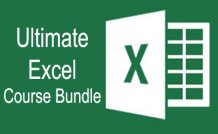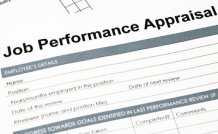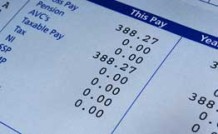Online Class: Financial Analysis 101 — Planning and Control

no certificate
with CEU Certificate*
-
12Lessons
-
14Exams &
Assignments -
418Students
have taken this course -
7Hours
average time -
0.7CEUs
Course Description
The crux of financial analysis lies with its purpose. It may be the company's focus on short-term liquidity or its long-term planning. Financial statements provide a picture of the company's financial condition. Forecasting involves analyzing these statements to project calculated scenarios and probabilities.
Definitively, financial planning and control (aka financial management) analyzes the firm's financial mission and goals, to achieve various milestones and planned goals.
The field of finance is intertwined with economics, accounting, and the human element responsible for accurate analysis, forecasting, and practical quantitative applications.
· Economics provides structural data for decision-making;
· Accounting provides financial / cash flow data;
· The financial manager collects, interprets, processes, and allocates the firm's resources.
This course addresses principles and the process of strategic financial planning for any organization, large or small. You will learn that financial planning must include not only financial management methods (basic accounting) but also strategy(ies) necessary to decide how to accomplish corporate financial goals. We will provide useful information regarding the interpretation and application of:
· qualitative (economic activity) information, data, and statistics,
· quantitative data, analysis, and formulas (accounting), and
· forecasting methods to meet short-term and long-term corporate goals.
Financial planning is managing your finances over time in such a way that you can meet your business needs. Strategic planning is the process of determining the direction your company will take, the goals you have for the business and how to achieve what you want. Both types of planning involve defining objectives, gathering and analyzing data, implementing the plan and monitoring the results.
The goal of this course is to provide comprehensive information on financial analysis in areas of planning and control suited to anyone on any level desiring this information for either professional or personal use.
Objectively this course qualitatively and quantitatively defines, reviews, and illustrates the principles of corporate finance, including: profit/loss, asset and cash management, operational budgets, cost analysis, profitability, leverage, and decision and risk. Various industry approaches, cases, means and methods will be presented. The 12 Lessons will generally be organized into major areas of:
· Principles of Corporate Planning and Control
· Financial Statements and Reports
· Ratio Analysis
· Cost of Capital
· Cash Management and Cash Analysis
· Operations Budgeting
· Working Capital Management
· Capital Budgeting
- Completely Online
- Self-Paced
- Printable Lessons
- Full HD Video

- 6 Months to Complete
- 24/7 Availability
- Start Anytime
- PC & Mac Compatible
- Android & iOS Friendly
- Accredited CEUs

Course Lessons
Lesson 1. Principles of Corporate Finance
 Lesson 1 Video
Lesson 1 Video Lesson discussions: Reasons for Taking this Course
Lesson discussions: Reasons for Taking this Course Complete Assignment: An Introduction
Complete Assignment: An Introduction Assessment: Exam 1
Assessment: Exam 1
Lesson 2. Financial Statements and Reports
 Lesson 2 Video
Lesson 2 Video Assessment: Exam 2
Assessment: Exam 2
Lesson 3. Ratio Analysis
 Lesson 3 Video
Lesson 3 Video Assessment: Exam 3
Assessment: Exam 3
Lesson 4. Cost of Capital
 Lesson 4 Video
Lesson 4 Video Assessment: Exam 4
Assessment: Exam 4
Lesson 5: Cash Management
 Lesson 5 Video
Lesson 5 Video Assessment: Exam 5
Assessment: Exam 5
Lesson 6: Cost Analysis
 Lesson 6 Video
Lesson 6 Video Assessment: Exam 6
Assessment: Exam 6
Lesson 7: Operational Budgeting
 Lesson 7 Video
Lesson 7 Video Assessment: Exam 7
Assessment: Exam 7
Lesson 8: Operating and Financial Leverage
 Lesson 8 Video
Lesson 8 Video Assessment: Exam 8
Assessment: Exam 8
Lesson 9: Working Capital Management
 Lesson 9 Video
Lesson 9 Video Assessment: Exam 9
Assessment: Exam 9
Lesson 10: Current Asset and Debt Management
 Lesson 10 Video
Lesson 10 Video Assessment: Exam 10
Assessment: Exam 10
Lesson 11: Capital Budgeting
 Lesson 11 Video
Lesson 11 Video Assessment: Exam 11
Assessment: Exam 11
Lesson 12: Decisions and Risk
 Lesson 12 Video
Lesson 12 Video Lesson discussions: Let us know what you think of this course; Course Comments; Program Evaluation Follow-up Survey (End of Course)
Lesson discussions: Let us know what you think of this course; Course Comments; Program Evaluation Follow-up Survey (End of Course) Assessment: Exam 12
Assessment: Exam 12 Assessment: The Final Exam
Assessment: The Final Exam
Learning Outcomes
- Describe principles of corporate finance.
- Summarize financial statements and reports.
- Describe ratio analysis.
- Describe cost of capital.
- Describe cash management.
- Summarize describe cost analysis..
- Summarize operational budgeting.
- Summarize operating and financial leverage.
- Describe working capital management.
- Describe current asset and debt management.
- Describe capital budgeting.
- Demonstrate mastery of lesson content at levels of 70% or higher.
Additional Course Information

- Document Your Lifelong Learning Achievements
- Earn an Official Certificate Documenting Course Hours and CEUs
- Verify Your Certificate with a Unique Serial Number Online
- View and Share Your Certificate Online or Download/Print as PDF
- Display Your Certificate on Your Resume and Promote Your Achievements Using Social Media

Choose Your Subscription Plan
No Certificate / No CEUs
This course only
| Includes certificate | X |
| Includes CEUs | X |
| Self-paced |

|
| Instructor support |

|
| Time to complete | 6 months |
| No. of courses | 1 course |
Certificate & CEUs
This course only
| Includes certificate |

|
| Includes CEUs |

|
| Self-paced |

|
| Instructor support |

|
| Time to complete | 6 months |
| No. of courses | 1 course |
Certificates & CEUs
Includes all 600+ courses
| Includes certificate |

|
| Includes CEUs |

|
| Self-paced |

|
| Instructor support |

|
| Time to complete | 12 Months |
| No. of courses | 600+ |
Certificates & CEUs
Includes all 600+ courses
| Includes certificate |

|
| Includes CEUs |

|
| Self-paced |

|
| Instructor support |

|
| Time to complete | 24 Months |
| No. of courses | 600+ |
Student Testimonials
- "It was an amazing time learning about financing, I can actually say that I learned a lot, and thank you." -- Anderson J.
Related Courses
-
 29 hours
2.9 CEUs
Human Resources Productivity Course Bundle
$120.00
29 hours
2.9 CEUs
Human Resources Productivity Course Bundle
$120.00
-
 36 hours
3.6 CEUs
Ultimate Secretary Training Bundle
$150.00
36 hours
3.6 CEUs
Ultimate Secretary Training Bundle
$150.00
-
 45 hours
4.5 CEUs
Ultimate Excel Training Bundle
$125.00
45 hours
4.5 CEUs
Ultimate Excel Training Bundle
$125.00
-
 87 hours
8.7 CEUs
Writing Help Course Bundle
$135.00
87 hours
8.7 CEUs
Writing Help Course Bundle
$135.00
-
 30 hours
3.0 CEUs
Microsoft Office 2021: Word, Excel, PowerPoint and Outlook
$110.00
30 hours
3.0 CEUs
Microsoft Office 2021: Word, Excel, PowerPoint and Outlook
$110.00
-
 8 hours
0.8 CEUs
General Secretary 101
$95.00
8 hours
0.8 CEUs
General Secretary 101
$95.00
-
 6 hours
0.6 CEUs
Mindfulness in the Workplace
$95.00
6 hours
0.6 CEUs
Mindfulness in the Workplace
$95.00
-
 11 hours
1.1 CEUs
Writing Effective Emails in the Workplace
$95.00
11 hours
1.1 CEUs
Writing Effective Emails in the Workplace
$95.00
-
 9 hours
0.9 CEUs
Business Management
$110.00
9 hours
0.9 CEUs
Business Management
$110.00
-
 7 hours
0.7 CEUs
Financial Analysis 101: Planning and Control
$95.00
7 hours
0.7 CEUs
Financial Analysis 101: Planning and Control
$95.00
-
 7 hours
0.7 CEUs
Management Consultant 101
$95.00
7 hours
0.7 CEUs
Management Consultant 101
$95.00
-
 5 hours
0.5 CEUs
Retail Business 101
$95.00
5 hours
0.5 CEUs
Retail Business 101
$95.00
-
 6 hours
0.6 CEUs
Delegation Skills
$95.00
6 hours
0.6 CEUs
Delegation Skills
$95.00
-
 5 hours
0.5 CEUs
Project Management 101
$95.00
5 hours
0.5 CEUs
Project Management 101
$95.00
-
 8 hours
0.8 CEUs
Procurement Management
$95.00
8 hours
0.8 CEUs
Procurement Management
$95.00
-
 6 hours
0.6 CEUs
Management Essentials
$95.00
6 hours
0.6 CEUs
Management Essentials
$95.00
-
 6 hours
0.6 CEUs
Freelance Writing 101
$95.00
6 hours
0.6 CEUs
Freelance Writing 101
$95.00
-
 8 hours
0.8 CEUs
Administrative Assistant 101
$95.00
8 hours
0.8 CEUs
Administrative Assistant 101
$95.00
-
 9 hours
0.9 CEUs
Microsoft Project 2021
$95.00
9 hours
0.9 CEUs
Microsoft Project 2021
$95.00
-
 3 hours
0.3 CEUs
Business Credit 101
$95.00
3 hours
0.3 CEUs
Business Credit 101
$95.00
-
 12 hours
1.2 CEUs
Advertising, Marketing and Sales Writing
$95.00
12 hours
1.2 CEUs
Advertising, Marketing and Sales Writing
$95.00
-
 6 hours
0.6 CEUs
Google Docs
$95.00
6 hours
0.6 CEUs
Google Docs
$95.00
-
 7 hours
0.7 CEUs
Innovative Thinking
$95.00
7 hours
0.7 CEUs
Innovative Thinking
$95.00
-
 6 hours
0.6 CEUs
Business Branding 101
$95.00
6 hours
0.6 CEUs
Business Branding 101
$95.00
-
 5 hours
0.5 CEUs
Kaizen 101 - An Introduction
$95.00
5 hours
0.5 CEUs
Kaizen 101 - An Introduction
$95.00
-
 6 hours
0.6 CEUs
Job Performance Appraisals - A How To Guide
$95.00
6 hours
0.6 CEUs
Job Performance Appraisals - A How To Guide
$95.00
-
 8 hours
0.8 CEUs
Business Ethics
$95.00
8 hours
0.8 CEUs
Business Ethics
$95.00
-
 5 hours
0.5 CEUs
Accounts Receivable Management
$95.00
5 hours
0.5 CEUs
Accounts Receivable Management
$95.00
-
 14 hours
1.4 CEUs
QuickBooks Online
$95.00
14 hours
1.4 CEUs
QuickBooks Online
$95.00
-
 7 hours
0.7 CEUs
Interpersonal Communication
$95.00
7 hours
0.7 CEUs
Interpersonal Communication
$95.00
-
 7 hours
0.7 CEUs
Google Sheets
$95.00
7 hours
0.7 CEUs
Google Sheets
$95.00
-
 5 hours
0.5 CEUs
Creative Thinking
$95.00
5 hours
0.5 CEUs
Creative Thinking
$95.00
-
 8 hours
0.8 CEUs
Strategic Planning
$95.00
8 hours
0.8 CEUs
Strategic Planning
$95.00
-
 8 hours
0.8 CEUs
Payroll Management 101
$95.00
8 hours
0.8 CEUs
Payroll Management 101
$95.00
-
 7 hours
0.7 CEUs
Google Slides
$95.00
7 hours
0.7 CEUs
Google Slides
$95.00
-
 7 hours
0.7 CEUs
Business Law for Entrepreneurs
$95.00
7 hours
0.7 CEUs
Business Law for Entrepreneurs
$95.00
-
 7 hours
0.7 CEUs
Accounts Payable Management
$95.00
7 hours
0.7 CEUs
Accounts Payable Management
$95.00
-
 6 hours
0.6 CEUs
Goal Setting for Business
$95.00
6 hours
0.6 CEUs
Goal Setting for Business
$95.00
-
 9 hours
0.9 CEUs
Product Management 101
$95.00
9 hours
0.9 CEUs
Product Management 101
$95.00









